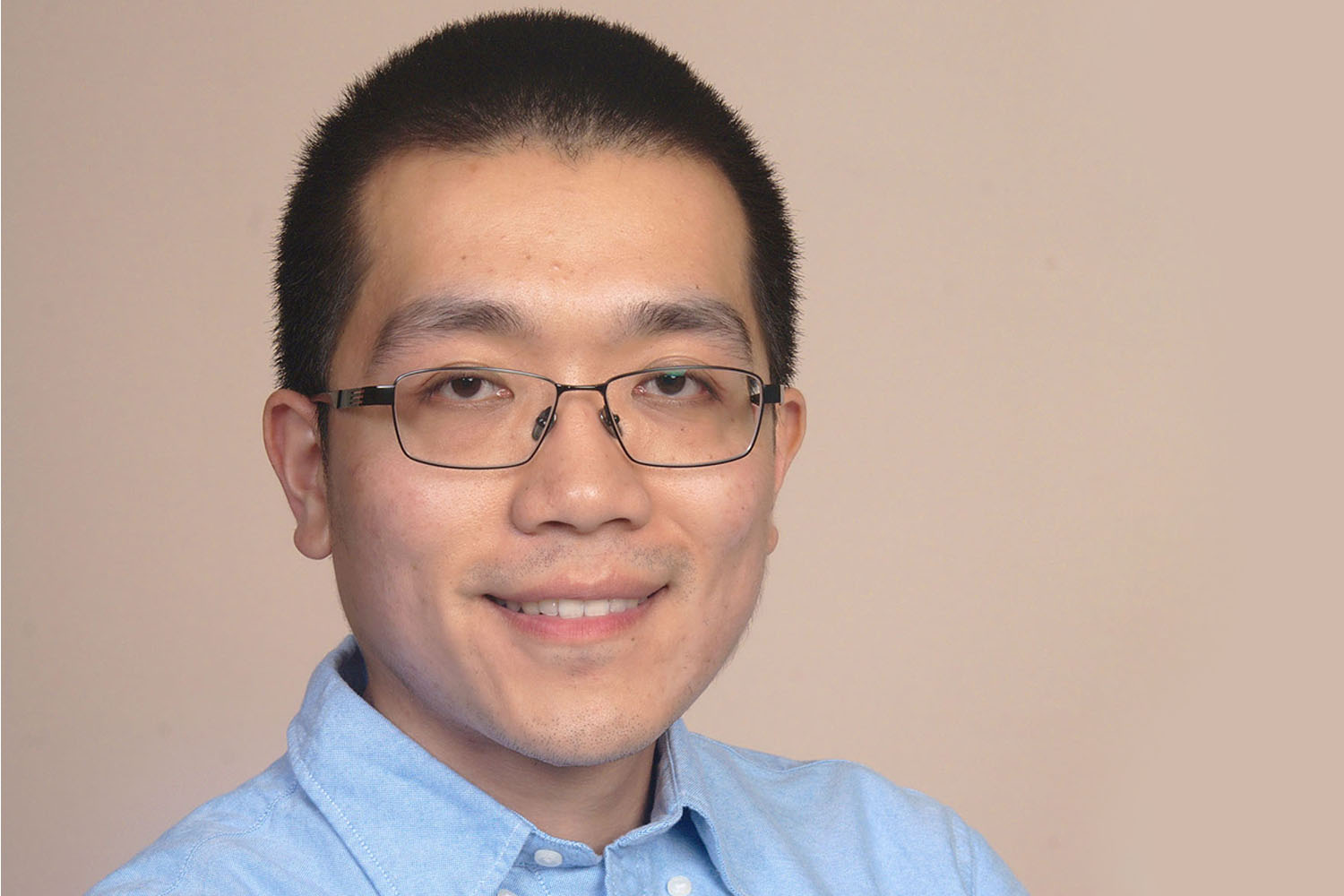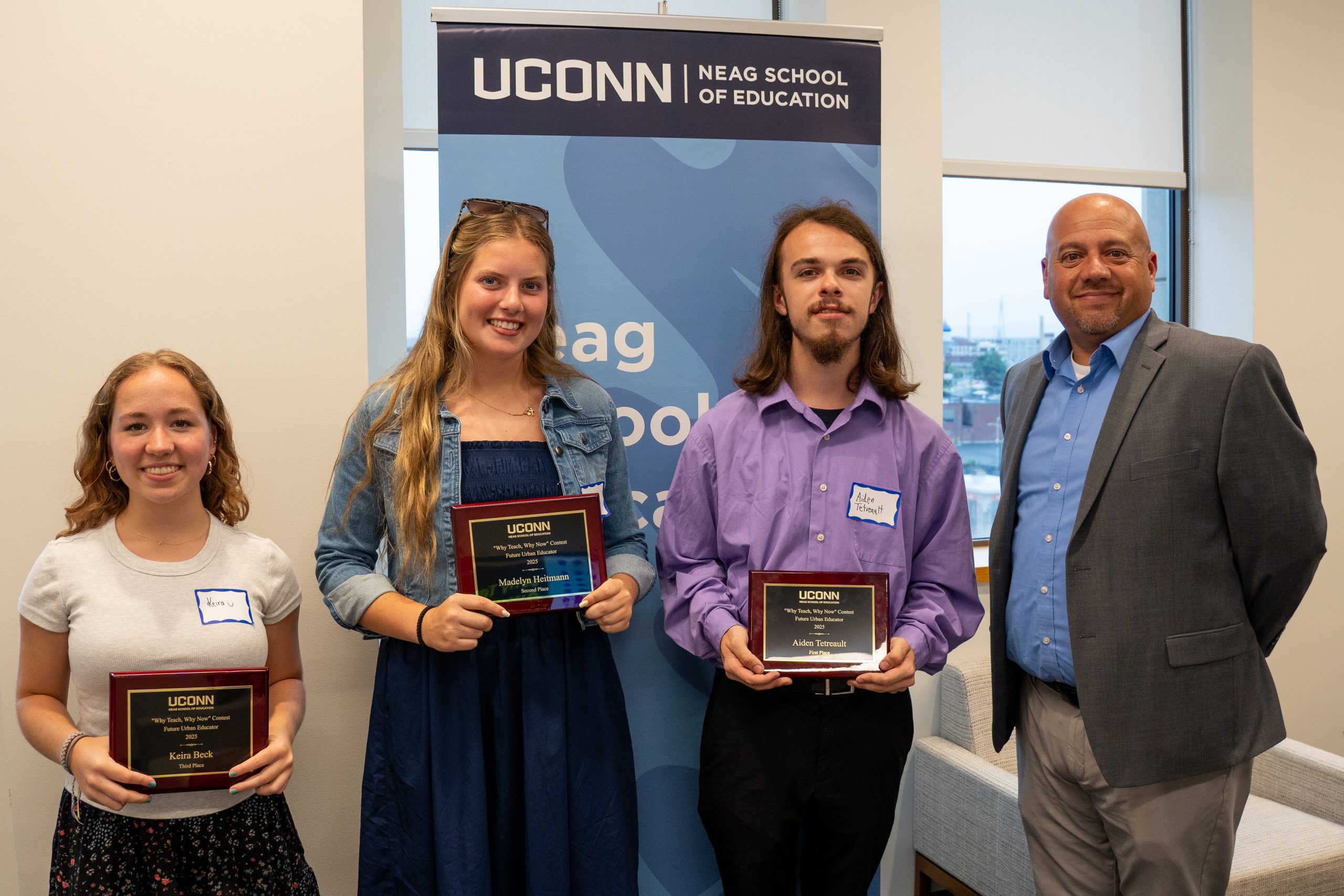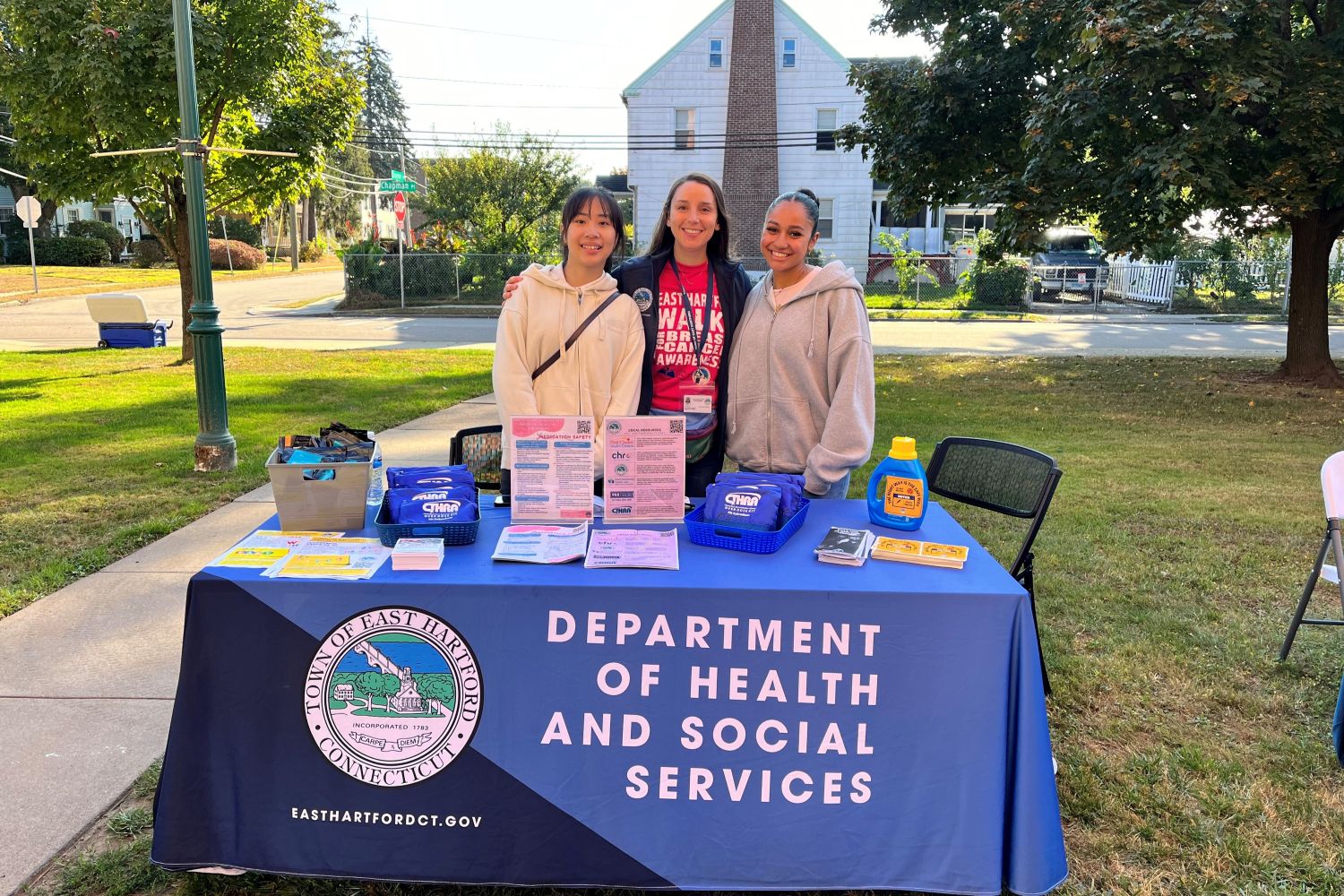The global response to the COVID-19 pandemic illustrates the importance of using data to guide action, such as allocating resources and designing effective health policies. In health-related research, biostatisticians are key researchers who collect and analyze data in order to translate biology, medicine and public health information into practical knowledge.
As a biostatistician in the Department of Allied Health Sciences (AHS), Assistant Professor Ran Xu is a key research collaborator on a range of projects at UConn and with other institutions. While his research focuses mainly on public health, specifically health behavior and health policy, he also has conducted studies in genetics and other fields. While biostatisticians often focus on a single field of research, Xu welcomes the ability to apply his statistical knowledge and skills to a variety of research to expand his own learning.
“Biostatisticians must have knowledge specific to the discipline they study,” says Xu. “The fundamental methods in biostatistics are essentially the same as theoretical statistics, but the biggest difference is you need to know the context. If you don’t know what you’re looking for, then that can be a challenge.”
Xu joined AHS in August 2019. He is also an affiliated faculty member in the Institute for Collaboration on Health, Intervention and Policy. This past spring, he taught an undergraduate course called Biostatistics for Health Professionals, a course cross-listed in AHS and the Department of Statistics. The class focuses on helping students bridge the gap between health knowledge and mathematical skills that make biostatisticians successful researchers.
“This semester, half of the students in the course were from the Statistics Department and the other half were in Allied Health Sciences,” Xu says. “At the beginning of the course, I asked the class if they knew what a t-test was. The statistics students knew but most of the allied health students did not. Then I asked the class what a triglyceride was and the statistics students mostly didn’t know, but the allied health sciences students did. To be a good biostatistician, you need to have diverse knowledge and even I’m still learning.”
During his graduate studies, Xu decided he wanted to use mathematics to solve social problems. He completed his Ph.D. in measurement and quantitative methods in the College of Education at Michigan State University in 2016. His research studied the relationship between the mental health and well-being of students and their academic achievement. Afterwards, he completed postdoctoral training in the Grado Department of Industrial & System Engineering at Virginia Tech in 2019. He completed studies that examined cross-disciplinary research in health-related fields, among many other projects.
“I learned how to be a systems scientist,” says Xu. “I studied how to build better systems, whether they were physical or social. Part of my research is doing social network analysis and policy simulation, which takes a complex system view to locate the problem at hand. For example, there are many factors involved in obesity, including the family, the economy and social networks. A complex system view means you look at how factors are interrelated and how they influence each other. I take all these statistical skills and now apply them to the field of health.”
Xu’s current projects include studying the efficacy of mobile health (mHealth) approaches, identifying the impact of physical activity on aging and developing ways to improve nutritional choices at local food pantries and food banks, in addition to several other research ventures.
With AHS colleague Professor Sherry Pagoto and other researchers in the UConn Center for mHealth and Social Media, Xu is studying ways to use Facebook to promote weight loss. He conducts social network analysis on the project, drawing on his systems science background. By tracking interactions, the project seeks to gain a more nuanced understanding of how social support is generated and how it relates to weight loss outcomes. In fall 2019, Xu, Pagoto and AHS Assistant Professor Molly Waring published a paper on the unique challenges and future directions for mHealth research.
Xu also examines aging with AHS Associate Professor Jeanne McCaffery. They are designing a study to determine the impact of physical activities on aging by measuring the attrition of telomere length over time. A biomarker of aging, telomeres are found on the ends of chromosomes in cells. Telomeres protect the DNA molecules that make up the chromosome, but telomeres shorten each time a cell divides. The study aims to understand how physical activities affect the rate at which telomeres wear down over time.
In addition to research within his department, Xu also collaborates with other departments and organizations. He is working with the UConn Rudd Center for Food Policy and Obesity to study ways to help individuals and families that use Connecticut food banks and food pantries to make healthier choices.
“Sometimes not all the foods available at these locations are healthy. So, a few of the food banks have started to implement a stoplight system with green, yellow and red to indicate if it’s a healthful item. The Rudd Center has started collecting data and I’m working to clean the data for analysis,” says Xu.
Data collected for any research needs to be organized and checked for errors, including information that is missing, duplicated, or inaccurate. Xu says the information he is compiling for this project arrive in multiple file formats with each organization and individual counting food items differently. Part of his work is constructing a data set that is consistent and can then be analyzed in order to provide feedback on the effectiveness of the stoplight policy.
Xu is also lending his expertise to study our most urgent global health issue: COVID-19. He is part of a team exploring the effects of weather and air pollution on transmission rates of the virus around the globe. The team consists of researchers from Harvard Medical School, Massachusetts Institute of Technology, Virginia Tech, Mass General and the University of Copenhagen.
“I enjoy being a part of interdisciplinary research,” says Xu. “I especially enjoy being in this department because there are many opportunities to learn by working with different people.”



